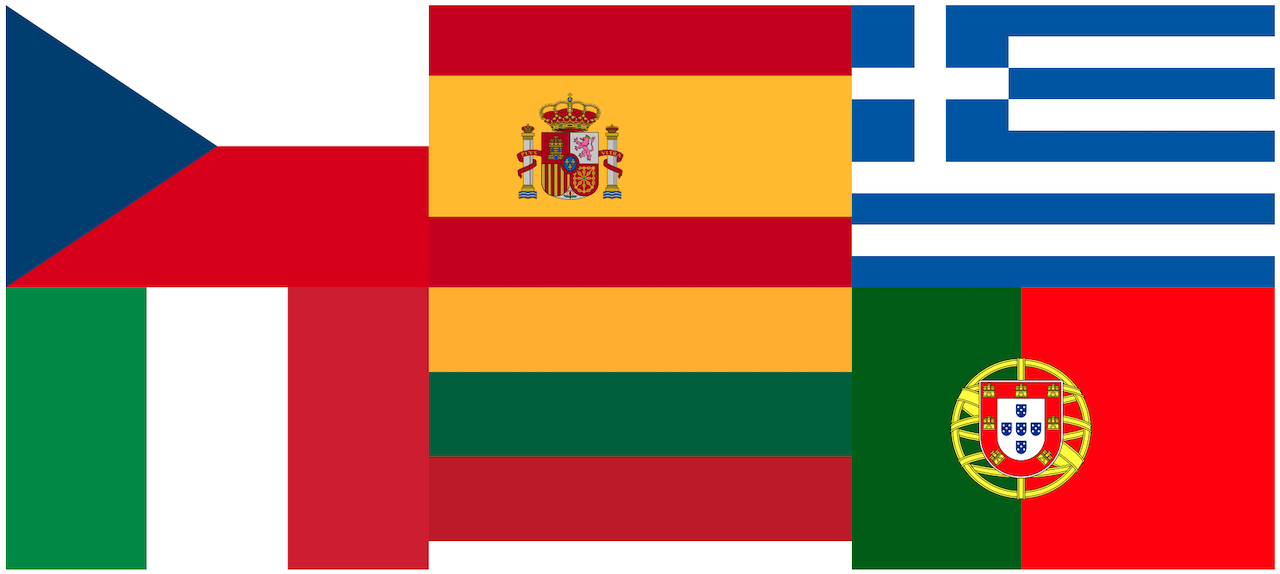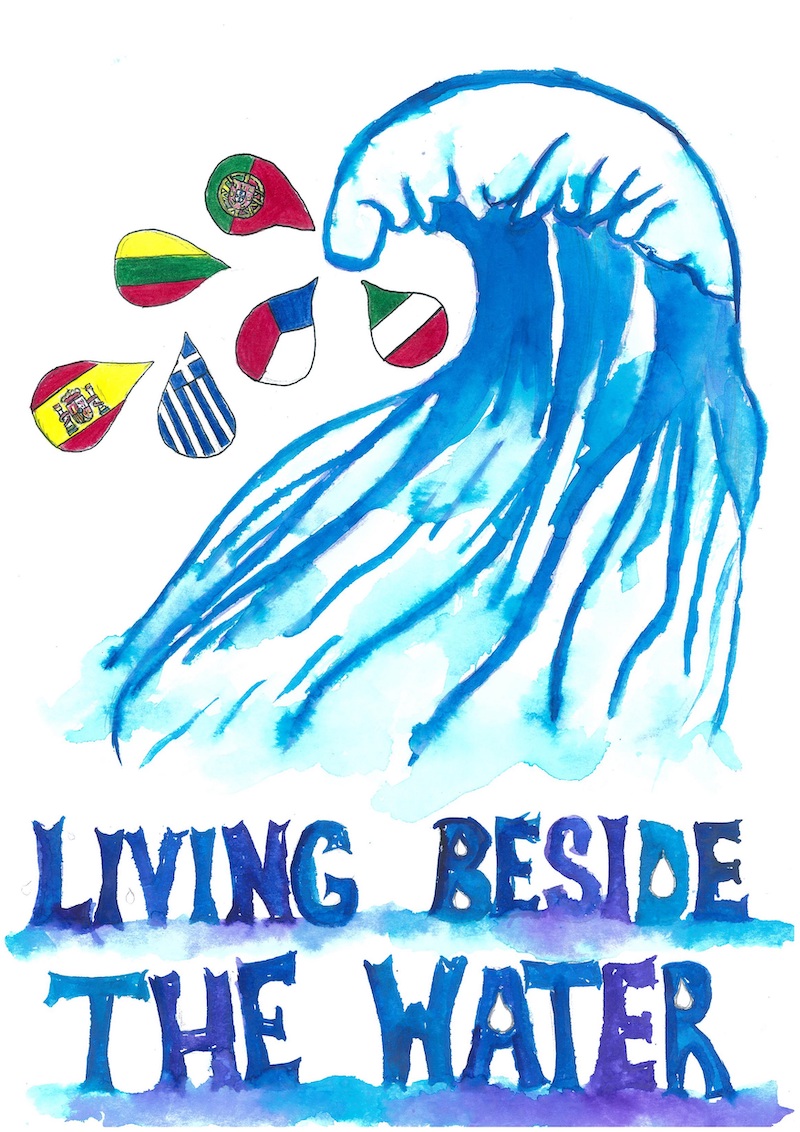On Monday, December 13, the 4th meeting of our partner project Living Beside the Water was launched. The meeting of six partner schools took place virtually again.
On Monday, we watched a short video from each school, where all the participants introduced themselves, and we were also on a virtual tour of the Rokai Gymnasium in Kaunas – our partner school. On the second day, each of the schools presented its “water” in terms of economy and tourism. Our presentation was prepared and presented by pupils from 9.C. On the third day we were given a small homework – to prepare a mind map of keywords that relate to each country, and at the beginning of the meeting we presented these mind maps. Each of the schools used a different tool and the mind maps were very nice. After the introduction, we were waiting for a presentation of tourist leaflets about interesting places in the area, our pupils introduced others to Dubice and Hell, Holanské ponds, Sloup v Čechách and Mácha Lake, each presented their own leaflet.
Thursday’s meeting was devoted to a discussion on the creation of a thematic e-book on water of individual countries, this book will be created by the end of the project. Our part will be devoted to Central European rivers. At the last meeting we were again given homework – to tell others something interesting about our language – Lithuanian has a very long word, in Greek they have a very long palindrome, in Czech we have a unique ř, in Portuguese we find the longest word that means respiratory illness caused by dust from the eruption of a volcano, the Spanish school told us where in the world Spanish is spoken, and the Italians have told us the meaning of some of the gestures that are used in a large number of expressions. Then we briefly discussed the topic of the spring meeting in Italy and at the end of the week-long marathon we watched a video about interesting places in Lithuania – the Nemen River, the Kaunas hydroelectric power plant, the spa town of Druskininkai.
At the very end, we used mobile phones in the Mentimeter app to share with others the feelings and impressions of the meeting.
This meeting, although not personal, as we had hoped for in the summer, once again allowed us to communicate with our partners from other schools, try out various tools for creating leaflets, brochures, presentations and mind maps and, last but not least, spend time together, learn interesting facts from other European countries and, of course, practice English. We are looking forward to the spring meeting in Livorno, Italy.


